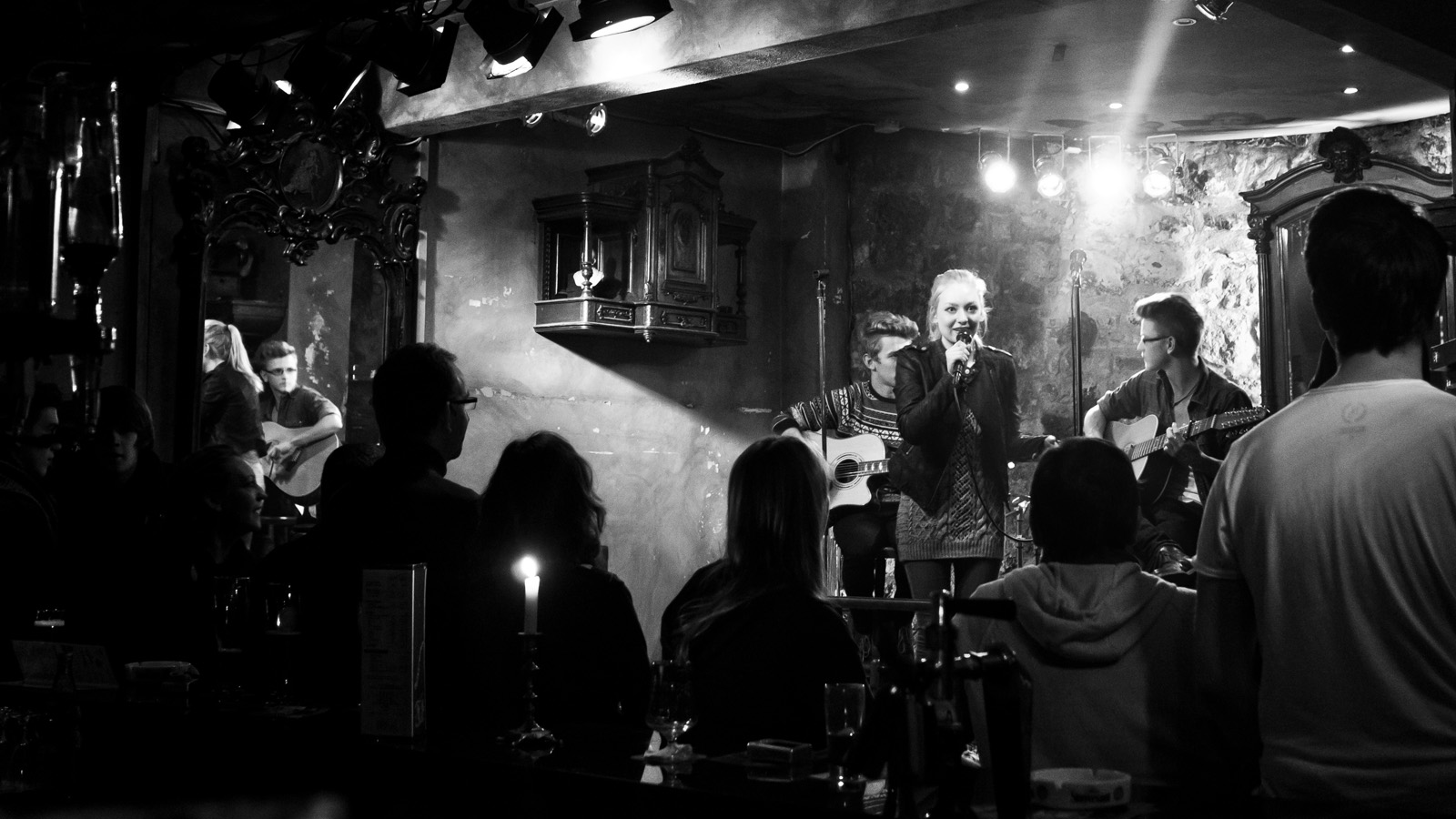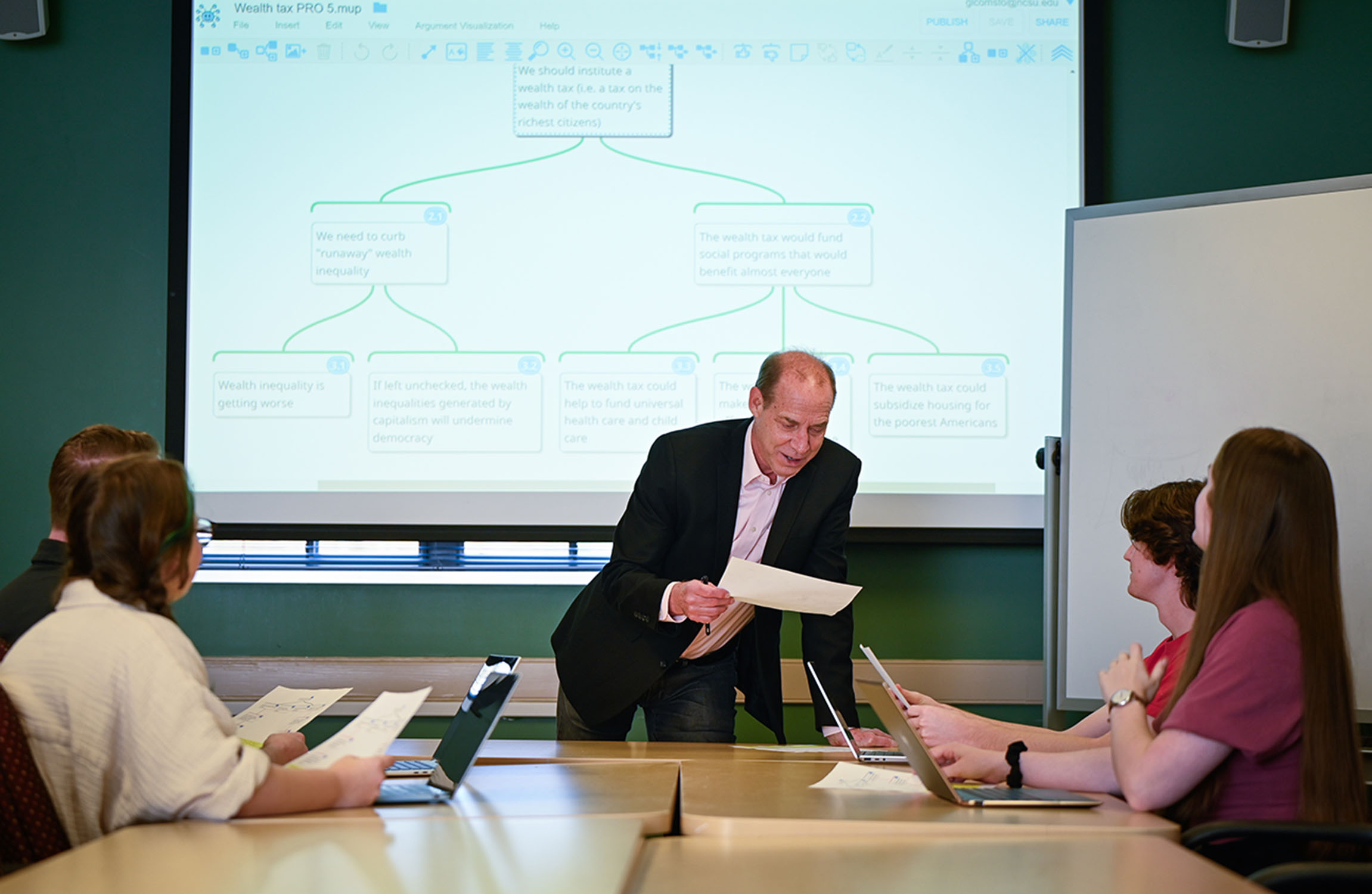Study Finds Indie Rockers Face Business Communication Challenges

A new study from North Carolina State University finds that indie rock musicians face significant business communication challenges, requiring them to develop skills that are probably not what they had in mind when they decided to make a career out of rock n’ roll.
“Basically, I wanted to know how musicians get paid in the 21st century,” says Stephen Carradini, author of a journal article on the work and a Ph.D. student in NC State’s Communication, Rhetoric and Digital Media program. “I study business communication, so that’s what I focused on.”
To learn more about the subject, Carradini interviewed 18 indie rock musicians from around the country about their work-related day-to-day activities.
It turns out that these musicians spend a lot of their time addressing communication-oriented tasks.
“The musicians had to communicate with a lot of audiences: fans, potential fans, booking agents, record labels, etc.,” Carradini says. “They also needed to write in a wide variety of formats, from business emails to social media posts for fans to advertising materials aimed at attracting new fans.”
Carradini compared these communication activities and challenges to those found in more conventional business settings.
“I found that rock musicians, particularly those without major label support, face a unique set of challenges,” Carradini says.
“First, they have to build an audience – identifying and attracting fans on a consistent basis,” Carradini says. “This is fundamentally a communications challenge. How do you reach people who aren’t fans yet?
“Second, musicians have to be prepared for slow growth – meaning that it will take a long time and a lot of work to reach a point of being economically self-supporting, rather than working multiple jobs,” Carradini says. “This slow growth means it’s difficult for musicians to hire people with relevant skills to help them with their professional communication challenges. And that limitation is itself one reason that growth is slow.
Lastly, Carradini found that indie musicians have uneven power relations in their field.
“Musicians can rarely turn down gigs – even lousy gigs – because there are a finite number of venue bookers in any given region. And musicians can’t afford to alienate people who control their access to venues.
“This means that musicians have to learn a very particular type of business communication skill: how to negotiate from a weak position,” Carradini says.
Carradini says that many musicians also reported feeling very frustrated with some social media platforms. Specifically, musicians noted that they could build up a large fanbase on Facebook and then be unable to reach the bulk of that fanbase due to artificial constraints on how many of their Facebook followers would see any given post. They felt that this made it more difficult for them to reach one of their most important audiences.
But Carradini also identified approaches that some musicians use to address these challenges. The overarching theme across all of the approaches was persistence – such as making concerted efforts over time to cultivate and maintain professional connections, or visiting the same cities over and over again, even if initial audience support was lackluster.
“The work highlighted in this paper shows that the music business is distinct from other industries, but it’s still a business,” Carradini says. “People who want to go into music would be well-served to find training in at least the basics of business communication, in college or elsewhere.”
The paper, “An Organizational Structure of Indie Rock Musicians as Displayed by Social Media Usage,” is published in the Journal of Technical Writing and Communication.


